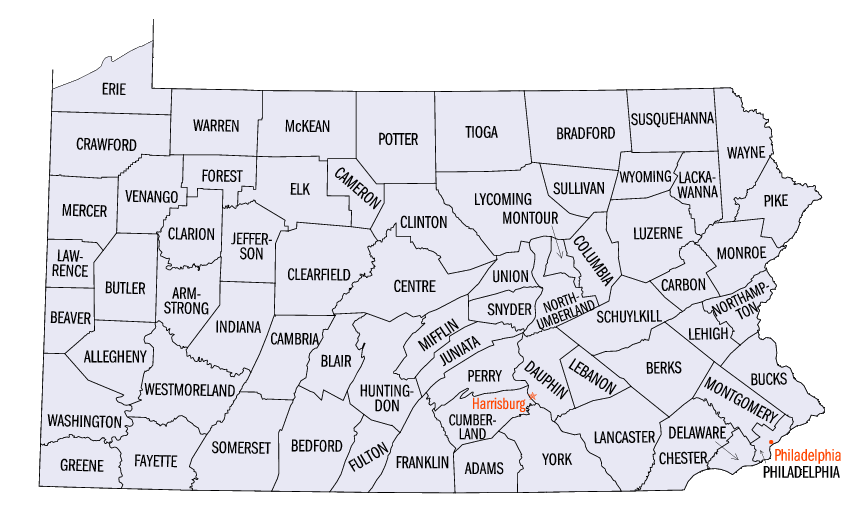The Pennsylvania building codes set rules for safe and proper construction. Builders must follow these standards to leave the house or building safe and quality. Before you begin any project, you’ll need a permit to ensure that your project complies with local regulations. In addition, the contractors must have a valid license to prove they are expert enough to do the work.
Pennsylvania Building Codes, Permit and Licensing Information
Updated: Jan. 19, 2023
By imposing strict safety requirements, the Pennsylvania building codes protects communities by helping ensure that all buildings follow that path. To complete projects homeowners and builders must know these codes and licensing rules. Using the code is safe construction and all rules of the state law.
Pennsylvania Building Codes Agency:
Department of Labor & Industry
Bureau of Industrial Safety
1723 Labor & Industry Building
651 Boas Street
Harrisburg, PA 17121
(717) 783-6304
Email: [email protected]
Website: https://www.dli.pa.gov/ucc/pages/default.aspx
Pennsylvania Building Codes and Edition Adopted:
The state adopts the following codes statewide except the City of Philadelphia and Allegheny County which adopt custom codes.
- 2018 International Building Code (IBC)
- 2018 International Existing Building Code (IEBC)
- 2018 International Fire Code (IFC)
- 2018 International Fuel Gas Code (IFGC)
- 2018 International Mechanical Code (IMC)
- 2018 International Plumbing Code (IPC)
- 2018 International Swimming Pool and Spa Code (ISPSC)
- 2018 International Wildland Interface Code (IWUIC)
- 2017 Article XV Allegheny County Health Department Plumbing Code
- 2017 National Electric Code (NEC) – Effective 2/14/2022
- State Energy Code 2018 IECC and 90.1-2016
- National Fire Protection Association (NFPA) 101 Life Safety Code 2018
Applicability (statewide, local, limited): STATEWIDE
The state adopts by law the IBC and all codes referenced by the IBC except for Property Maintenance. Local jurisdictions can amend the state code to be more restrictive. Still, these ordinances can be appealed to the Secretary of Labor & Industry, who then holds a hearing and determines whether the local amendment will be allowed. The codes are updated every three years following the issuance of new editions of the ICC codes. The Review & Advisory Council (RAC) reviews the changes from the previous edition, takes input from interested parties and recommends whether any change should not be included in the updated codes adopted by the state. The updated codes are then adopted through the regulatory process.
| State Website | https://www.pa.gov/ | |
| State Licensing | Specialty contractor licensing may be mandatory but the State of Pennsylvania does not require general contractor licensing. Local jurisdictions may also require licensing. | |
| State Licensing Division | https://www.dos.pa.gov/ProfessionalLicensing/Pages/default.aspx | |
| State Fire Marshall | https://www.osfc.pa.gov/Pages/default.aspx | |
| State Environmental Permit | https://www.dep.pa.gov/Pages/default.aspx |
Additional Building Codes by State
Alabama, Alaska, Arizona, Arkansas, California, Colorado, Connecticut, Delaware, Florida, Georgia, Hawaii, Idaho, Illinois, Indiana, Iowa, Kansas, Kentucky, Louisiana, Maine, Maryland, Massachusetts, Michigan, Minnesota, Mississippi, Missouri, Montana, Nebraska, Nevada, New Hampshire, New Jersey, New Mexico, New York, North Carolina, North Dakota, Ohio, Oklahoma, Oregon, Pennsylvania, Rhode Island, South Carolina, South Dakota, Tennessee, Texas, Utah, Vermont, Virginia, Washington, West Virginia, Wisconsin, Wyoming

